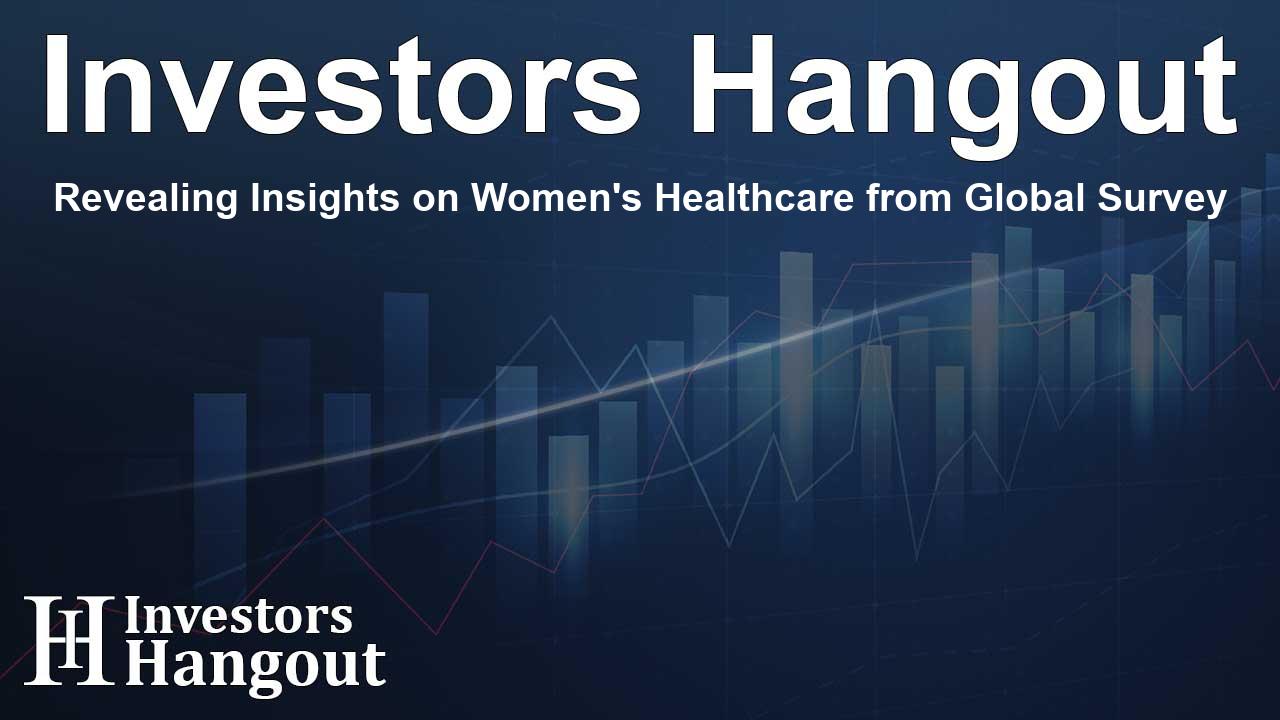Revealing Insights on Women's Healthcare from Global Survey

Understanding the Current State of Women's Healthcare
The recent survey findings shed light on critical issues surrounding women's healthcare. This extensive survey conducted by the Healthcare Businesswomen's Association (HBA) and FemTechnology involved 200 specialist physicians from various countries, providing valuable insights into the existing gaps in women's healthcare delivery.
Key Findings from Global Physicians
The data collected reveals striking statistics about women's health. Over 80% of physicians report observing differences in disease progression and treatment responses based on sex. Yet, alarmingly, less than 30% indicate they feel adequately prepared to address these disparities.
Furthermore, more than half of the physicians noted that the lack of gender-specific research and treatment guidelines is a significant barrier to providing effective clinical care. About 47% acknowledged that systemic biases, including ingrained gender stereotypes, further weaken the quality of care that women receive.
Cultural stigma and a lack of awareness are other major challenges identified by 53% of the respondents. These barriers particularly affect patients in middle- and low-income countries, leading to delays in receiving the necessary care.
Recognizing the Challenges
Even when women manage to seek medical help, they often face inadequacies in knowledge regarding sex-specific symptoms, combining with limited access to specialists identified by 45% of physicians as a critical gap. These issues highlight the broader implications on healthcare outcomes for women.
Voices from the Experts
Mary Stutts, CEO of the HBA, emphasized the urgent need for improved resources to support clinicians in catering to over half of the patient population effectively. Stutts stated that physicians are aware of the systemic failures in healthcare for women and are seeking effective solutions.
Oriana Kraft, CEO of FemTechnology, pointed out the tremendous market opportunity. As both physicians and patients demand better solutions, the companies that prioritize women's healthcare will hold a competitive advantage in the future.
Identifying Research Gaps in Women's Healthcare
A significant amount of evidence indicates critical biological, hormonal, and metabolic differences between genders, yet medical research frequently overlooks these factors. The result is a healthcare system relying on male-centric models, which often leaves women misdiagnosed and under-treated.
Research Gaps Impacting Women's Health: There are observable inequalities in gender-specific research; addressing these gaps is essential for enhancing healthcare understanding and service delivery.
The Importance of Hormonal Awareness: The hormonal changes experienced by women throughout their lives can significantly affect health management and outcomes. An awareness of these changes is crucial in all therapy areas.
Barriers to Effective Care
Many social, cultural, and systemic barriers continue to impede women's access to quality healthcare. The survey results indicate that a lack of preventative and diagnostic solutions tailored to women's specific health requirements further complicates the landscape.
Opportunities in Personalized Medicine
The shift towards personalized medicine allows for the development of targeted therapies that take into account women's unique biological differences. This avenue holds promise for delivering more effective care and improving health outcomes for women.
Actions Needed to Address the Gaps
The HBA and FemTechnology propose essential recommendations aiming to bridge the existing gaps within women's healthcare:
- Collecting Relevant Data: Implementing real-world data collection to develop sex-specific guidelines is a priority to ensure a more equitable healthcare framework.
- Expanding Definitions of Women’s Health: It is essential to redefine what women’s health encompasses by incorporating patient-reported data and real-time analytics.
- Centralizing Care Models: Constructing a cohesive model of care that accommodates women's specific needs is crucial for enhancing healthcare quality.
- Incentivizing Healthcare Change: Encouraging systemic change is vital to ensure that treatments and outcomes reflect the needs of the entire population.
Conclusion: Towards a More Equitable Healthcare System
By addressing the highlighted gaps and implementing the recommended actions, there is a remarkable opportunity to transform women’s healthcare. It not only paves the way for a more equitable system but also drives innovation in healthcare delivery.
Frequently Asked Questions
What issues did the survey find in women's healthcare?
The survey revealed significant gaps in gender-specific research, insufficient resources for clinicians, and systemic biases affecting the quality of care.
How many physicians participated in the survey?
200 physicians from diverse backgrounds and specialties participated in the global survey.
What do medical professionals say about their preparedness to treat women?
Less than 30% of physicians feel sufficiently equipped to tackle the observed sex differences in disease treatment and progression.
What role does FemTechnology play in addressing these gaps?
FemTechnology is dedicated to developing innovative solutions that bridge the gender health data gap and improve women's health services.
Why is personalized medicine important for women?
Personalized medicine can lead to targeted therapies that consider women's unique biological differences, thus improving health outcomes and care quality.
About The Author
Contact Riley Hayes privately here. Or send an email with ATTN: Riley Hayes as the subject to contact@investorshangout.com.
About Investors Hangout
Investors Hangout is a leading online stock forum for financial discussion and learning, offering a wide range of free tools and resources. It draws in traders of all levels, who exchange market knowledge, investigate trading tactics, and keep an eye on industry developments in real time. Featuring financial articles, stock message boards, quotes, charts, company profiles, and live news updates. Through cooperative learning and a wealth of informational resources, it helps users from novices creating their first portfolios to experts honing their techniques. Join Investors Hangout today: https://investorshangout.com/
The content of this article is based on factual, publicly available information and does not represent legal, financial, or investment advice. Investors Hangout does not offer financial advice, and the author is not a licensed financial advisor. Consult a qualified advisor before making any financial or investment decisions based on this article. This article should not be considered advice to purchase, sell, or hold any securities or other investments. If any of the material provided here is inaccurate, please contact us for corrections.
